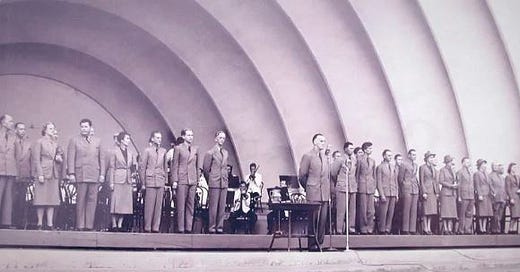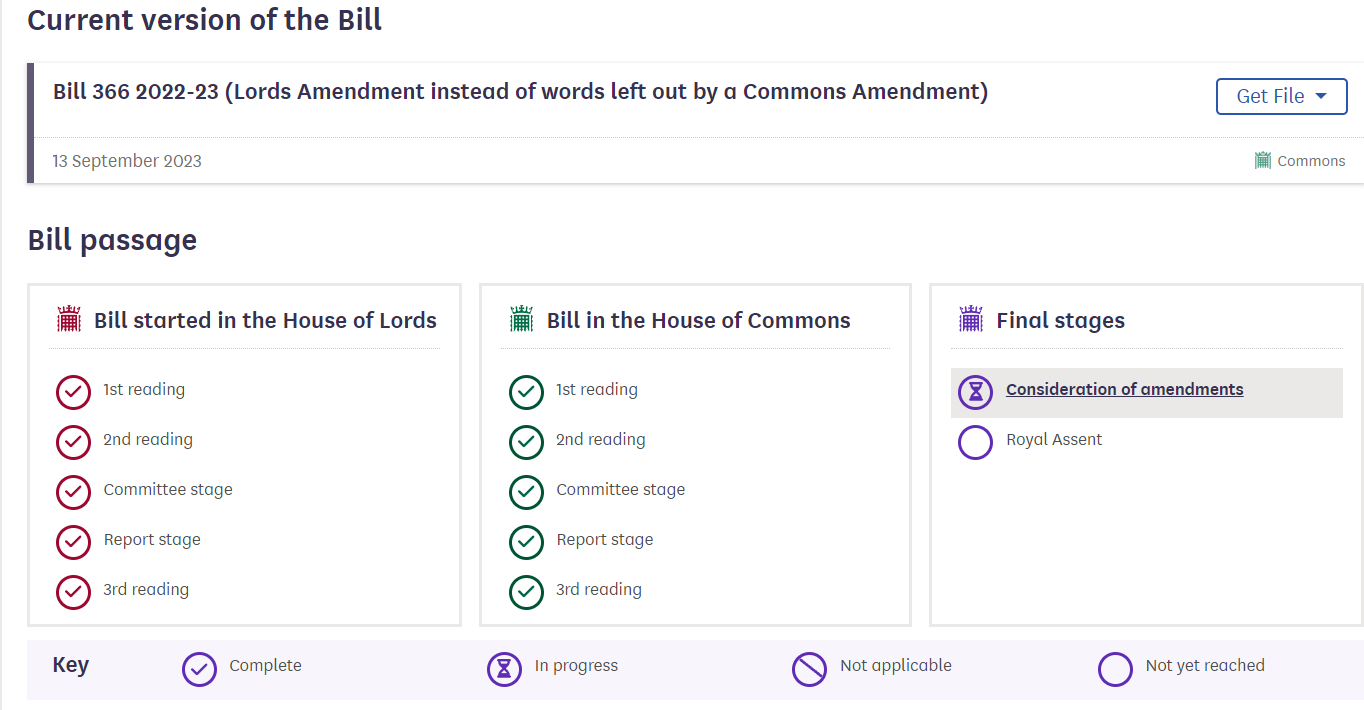Sustainable Development is Technocracy
Technocracy origins, agenda 2030, and eroding the sovereignty of nation states.
Technocracy is dealing with social phenomena in the widest sense of the word; this includes not only actions of human beings, but also everything which directly or indirectly affects their actions. Consequently, the studies of Technocracy embrace practically the whole field of science and industry. Biology, climate, natural resources and industrial equipment all enter into the social picture…
- The Technocracy Study Course (1932).
Ergo, Technocracy is sustainable development. Sustainable development is technocracy.
Where possible, throughout this piece, links to books available in the Internet Archive’s free digital library shall be provided within the footnotes section.
Technocracy’s first iteration
In 1932, media mogul Randolph Hearst, owner of Hearst Communications, owned 30 major newspapers in the largest American cities. Yet Hearst had become increasingly desperate to save his media empire, in the wake of a deep economic depression, and reputational damage from having run sensationalised stories, along with faked interviews and pictures (sound familiar?). This style of reporting distorted real events, with readers being unable to recognise fake news, nor care, with the world being detached from reality (also sound familiar?).1
In the same year, Nicholas Murray Butler, President of Columbia University, was endorsing a new economic system being planned by scientists and engineers. The new system was touted as a panacea to America’s (and the world’s) economic woes, replacing capitalism and free markets. The fascinating name piqued Hearst’s interest: Technocracy.
Hearst Communications embraced the story, pumping out articles nationwide hailing the miraculous age of a scientific society (trust the science™).
Throughout the fall and winter of 1932, Hearst and Butler were seemingly on the same page. However, neither of them realised that they were being conned by the messianic leader of The Technocracy Group, Howard Scott. Scott relished the attention he received at Columbia, and he loved to give interviews to any reporter who would listen, most of whom were employed by Hearst newspapers. The bubble suddenly popped when it was discovered that Scott did not have the engineering degree that he claimed to have; in other words, he had pointedly defrauded both butler and Hearst and to say that they were both livid is an understatement.2
Technocracy is the science of social engineering, the scientific operation of the entire social mechanism to produce and distribute goods and services to the entire population…3
David Rockefeller later resurrected the idea of technocracy as a viable solution to wholescale societal transformation, after which significant funding was poured into the concept.
In a recent interview4 with Patrick Wood (author of Technocracy: The Hard Road To World Order, cited in footnotes below) by Dr. Joseph Mercola, Wood summarises Rockefeller’s role in the proliferation of technocracy:
When the Trilateral Commission picked up the concept of technocracy in 1973, and that was brought in by its co-founder, Zbigniew Brzezinski, and of course, David Rockefeller was the money behind the whole project. But Brzezinski was a professor at Columbia University. He wrote this book called “Between Two Ages: America's Role in the Technetronic Era.” It caught Rockefeller's eye. And so Rockefeller and Brzezinski became like the Beauty and the Beast. They went on to form the Trilateral Commission, which declared from day one, that they wanted to foster a new international economic order. They said that repeatedly in their literature, and this is what got Sutton excited, and me too. “What is this new international economic order you're talking about? What do you mean? We have an economic order. It seems to be working. Why do you want to change everything? What is your idea here?”
Well, we really didn't understand technocracy at the time. Looking back now that I've discovered it, I can see how everything fit together. But the Trilateral Commission took over the administration of Jimmy Carter, almost lock, stock and barrel. Carter was a member himself. Walter Mondale was a member. Brzezinski was a member. At one time, all of the cabinet members, except for one, was a member of the Trilateral Commission. You had over the next few years, 8 out of 10 of the World Bank presidents to get appointed by the U.S., they were members of the Trilateral Commission.
I could go on with this, but the Trilateral Commission moved in and dominated the political structure. Jimmy Carter was a Democrat. Ronald Reagan came in after that, along with George Bush, who is a Republican. And then came George Bush again, as his own presidency. Bush was a member of the Trilateral Commission. Then you had Bill Clinton and Al Gore come in, in the ‘90s. They were both members of the Trilateral Commission.
“Pouring on the strong medicine” with Agenda 2030’s sustainable development goals (SDGs)
Patrick Wood explains how technocracy is a resource-based economic system that used energy as an accounting system; contrasted with our current price-based (supply & demand) system using monetary accounting.
Referencing key points of the original definition of Technocracy:
Private property would be eradicated altogether. Everything would be owned in common by the the Technate and controlled by them.
All price-based energy currencies would be abolished and replaced by a system of Energy Certificates.
Energy certificates would be issued at the start of an accounting period, and expired at the end of it, preventing accumulation of savings for future needs.
All conceivable human needs (food, housing, transportation, medical, retirement, etc.) would be met by the Technate at their sole discretion.
Traditional systems of government would be abolished, including Congress and state governments.
A continental board of Technocrats would manage all economic and societal affairs according to Functional and Service sequences, defined and run by themselves.
Education would be transformed into human conditioning to prepare students for a lifetime of work chosen by the Technate.
Science and the Scientific Method would be the sole guide to decision-making throughout the Technate, based on collected data.
We can observe that these original ideas on Technocracy have been adopted by the United Nations, *not generated as a modern idea. The parallels are obvious.
Take the point above on energy certificates. The UK has been pushing energy performance certificates (EPCs) much harder of late, under the auspices of net zero. The most shocking Energy Bill5 proposed this year, has almost been passed by parliament, the house of lords, the house of commons, and finally awaiting royal endorsement from WEF acolyte King Charles.
In the Energy Bill, it is stated: “Energy performance regulations may provide for the creation of criminal offences.” These penalties encompass imprisonment of up to one year or fines amounting to £15,000.
We can be ‘grateful’ towards Claire Coutinho, the newly appointed Energy Security and Net Zero Secretary, who will be cheering on neo-feudalism and serfdom via Technocratic subjugation of the British people.
Here is the fluffy language part of the energy bill:
A Bill to make provision about energy production and security and the regulation of the energy market, including provision about the licensing of carbon dioxide transport and storage; about commercial arrangements for carbon capture and storage and for hydrogen production and transportation; about new technology, including low-carbon heat schemes and hydrogen grid trials; about the Independent System Operator and Planner; about gas and electricity industry codes; about financial support for persons carrying on energy-intensive activities; about heat networks; about energy smart appliances and load control; about the energy performance of premises; about energy savings opportunity schemes; about the resilience of the core fuel sector; about offshore energy production, including environmental protection, licensing and decommissioning; about the civil nuclear sector, including the Civil Nuclear Constabulary and pensions; and for connected purposes.
Patrick Wood notes the parallels from the original Technocracy doctrine, to that of the sustainable development’s goal of renewable energy and the global smart grid:
The first two requirements of Technocracy concerned the control of energy. The second requirement stated, “By means of the registration of energy converted and consumed, make possible a balanced load.” Everything must be finitely controlled down to the last milliwatt.
The most pertinent point of Agenda 20306 is the concept of no one left behind. We see the word “inclusive” popping up relentlessly in their rhetoric. Technocracy dictates that in their socially engineered society, every single person must be included, with no exceptions or holdouts allowed.
There is a difference between the ownership of private property and the control of private property. As the new world order attempts to herd people living in rural areas, into SMART cities, it will be made borderline impossible to retain ownership of property, unless complying with EPCs and other ‘green’, ‘carbon footprint tracking, and overall energy consumption diktats.
That said, the greater level of awareness we have across the globe, the more resistance will be demonstrably shown. People can either choose to learn and expand their consciousness, or they can remain ignorant and willfully blind, contracting their consciousness, until reality bites and they are in for one hell of a rude awakening.
Resistance is not futile.
For a deeper dive into the history of Technocracy, check out Derrick Broze’s documentary below:
Nicholas Creed is a Bangkok based dissident blogger. All content is free for all readers, nothing is locked in archive requiring a paid subscription. Any support is greatly appreciated.
Bitcoin address:
39CbWqWXYzqXshzNbosbtBDf1YoJfhsr45
Monero address:
86nUmkrzChrCS4v5j6g3dtWy6RZAAazfCPsC8QLt7cEndNhMpouzabBXFvhTVFH3u3UsA1yTCkDvwRyGQNnK74Q2AoJs6Pt












great work. If you want another dive into the topic (featuring Patrick) check out my Chapter13 of The Pyramid of Power here: https://derrickbroze.substack.com/p/the-pyramid-of-power-chapter-13-the
"Sustainability" , I have an idea, we all stop shopping at Big C, Lotus , Makro and 7-11. That should do the trick!